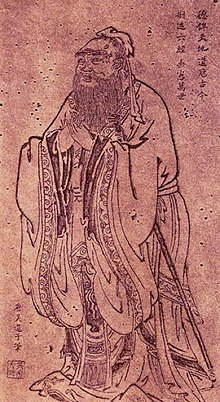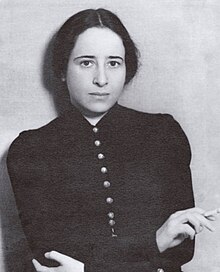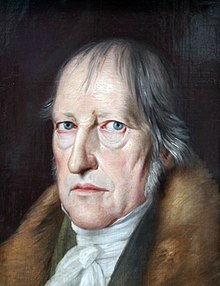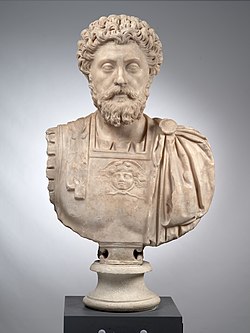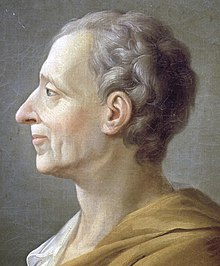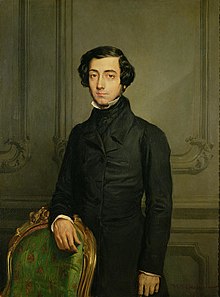
Philosophers of law
Philosophy of law is a branch of philosophy that examines the nature of law and law's relationship to other systems of norms, especially ethics and political philosophy. It asks questions like "What is law?", "What are the criteria for legal validity?", and "What is the relationship between law and morality?" Philosophy of law and jurisprudence are often used interchangeably, though jurisprudence sometimes encompasses forms of reasoning that fit into economics or sociology.Philosophy of law can be sub-divided into analytical jurisprudence, and normative jurisprudence.
11 episodes
Episodes in this category also belong to the following categories:
Bertrand Russell
Melvyn Bragg and his guests discuss the influential 20th-century British thinker Bertrand Russell, widely regarded as one of the founders of Analytical philosophy.
6 December 2012
Featuring: A. C. Grayling, Mike Beaney, Hilary Greaves
PhilosophyNobel laureates in LiteratureBritish philosophers of languageGeorgistsEnglish political writersFree love advocatesSet theoristsAristotelian philosophersWriters about religion and scienceJerusalem Prize recipientsFellows of Trinity College, CambridgeEnglish logiciansPhilosophers of mathematicsBritish historians of philosophyEmpiricistsOntologistsMetaphysics writersBritish political philosophersFellows of the Royal SocietyMetaphilosophersTheorists on Western civilizationBritish ethicistsPhilosophers of literatureBritish free speech activists20th-century English philosophersAnalytic philosophersEnglish humanistsRhetoric theoristsAtheist philosophersEnglish political philosophersEnglish anti-fascistsEnglish people of Scottish descentPhilosophers of historyEnglish agnostics20th-century atheistsConsequentialistsEnglish socialistsPhilosophers of social scienceBritish philosophers of religionPresidents of the Aristotelian SocietyLogiciansPhilosophers of lawPhilosophers of sexuality19th-century English mathematiciansCritics of work and the work ethicSecular humanistsPhilosophers of technologyPhilosophers of economicsWriters about globalizationBritish philosophers of educationBritish philosophers of culture, English pacifistsBritish philosophers of logicCritics of the Catholic ChurchPeople from MonmouthshireAlumni of Trinity College, CambridgeLinguistic turnPhilosophers of loveEuropean democratic socialistsBritish consciousness researchers and theoristsWriters about activism and social changeEnglish Nobel laureatesMembers of the Order of MeritEnglish prisoners and detaineesUtilitariansIntellectual historians, University of Chicago facultyEnglish scepticsBritish critics of ChristianityEnglish people of Welsh descentUniversal basic income writersBritish philosophers of mind19th-century English philosophersBritish critics of religionsAcademics of the London School of Economics, British philosophers of science19th-century atheistsUniversity of California, Los Angeles facultyAnti-nationalists20th-century English mathematiciansEnglish essayistsFreethought writersBritish atheism activistsWriters about communism19th-century English essayistsEnglish male non-fiction writersConfucius
Melvyn Bragg discusses the philosophy of Confucius, a body of ideas which, more than any other philosophy, has defined what it is to be Chinese.
1 November 2001
Featuring: Frances Wood, Tim Barrett, Tao Tao Liu
PhilosophyFounders of religionsPhilosophers of culturePhilosophers of law5th-century BC historiansPhilosophers of educationSocial philosophers5th-century BC Chinese writers, 6th-century BC Chinese writers, Chinese political philosophers, Deified Chinese men, Zhou dynasty philosophers, Zhou dynasty writers5th-century BC religious leaders, 6th-century BC religious leadersAphoristsClassical humanistsHannah Arendt
Melvyn Bragg and guests discuss the ideas of Hannah Arendt who examined totalitarianism and politics and, when covering the Eichmann trial, explored 'the banality of evil'.
2 February 2017
Featuring: Lyndsey Stonebridge, Frisbee Sheffield, Robert Eaglestone
PhilosophyPrinceton University facultyGerman political philosophersExistentialists20th-century American women writersIntellectual historians, University of Chicago facultyUniversity of Marburg alumniJewish existentialistsWomen religious writersPhilosophers of lawMembers of the American Academy of Arts and LettersSocial philosophersPhilosophy writersPhilosophers of technologyAmerican political philosophers20th-century German women writersGerman women philosophersFellows of the American Academy of Arts and SciencesPhilosophers of cultureThe New School faculty20th-century American essayistsExilliteratur writersJewish agnosticsGerman agnosticsGerman Ashkenazi JewsAmerican Ashkenazi Jews, American Zionists, American agnostics, German Zionists20th-century German philosophers20th-century American philosophers20th-century German non-fiction writersGerman ethicists, German philosophers of educationHeidelberg University alumniPolitical philosophersJewish emigrants from Nazi Germany to the United StatesPhilosophers of scienceScholars of antisemitismPhilosophers of historyAmerican philosophers of educationHegel's Philosophy of History
Melvyn Bragg and guests discuss Hegel's ideas on history as the progress of the consciousness of freedom, and whether we enjoy more freedom now than those in past centuries.
26 May 2022
Featuring: Sally Sedgwick, Robert Stern, Stephen Houlgate
PhilosophyGerman philosophers of artGerman political philosophersUniversity of Tübingen alumniGerman LutheransTheoretical historians19th-century German philosophers19th-century mysticsGerman idealistsPhilosophers of law18th-century German writersDeaths from choleraPhilosophy writers18th-century German male writersGerman philosophers of mind, German philosophers of religionWriters about religion and scienceAcademic staff of the Humboldt University of Berlin18th-century German philosophers, 18th-century essayists19th-century German male writersGerman philosophers of language19th-century German essayistsBurials at the Dorotheenstadt CemeteryGerman male essayists18th-century German educators, 18th-century historians, 19th-century German educators, 19th-century historiansMetaphysiciansHeidelberg University alumniPantheistsEnlightenment philosophersGerman philosophers of historyGerman male non-fiction writersHobbes
Melvyn Bragg discusses Thomas Hobbes, the great 17th century philosopher who famously said that ungoverned man lived a life that was ‘solitary, poor, brutish and short’.
1 December 2005
Featuring: Quentin Skinner, David Wootton, Annabel Brett
PhilosophyEpistemologistsMaterialistsNatural law ethicistsAlumni of St John's College, Cambridge17th-century English philosophersTheorists on Western civilizationEnglish physicistsPhilosophers of lawSocial philosophersBritish philosophers of educationRhetoric theoristsBritish critics of ChristianityPhilosophers of culturePhilosophers of language17th-century writers in LatinBritish critics of religionsCritics of the Catholic Church17th-century English writersPolitical realistsPhilosophers of mathematicsEnglish theologiansEmpiricistsOntologistsPhilosophers of mindMetaphysiciansPhilosophers of religionThomas HobbesEnglish political philosophersPhilosophers of sciencePhilosophers of history17th-century English male writersKant's Copernican Revolution
Melvyn Bragg and guests discuss Kant's ideas on how the world depends on us, on the limits of human knowledge and why we are bound to ask questions we cannot answer.
3 June 2021
Featuring: Fiona Hughes, Anil Gomes, John Callanan
PhilosophyGerman philosophers of artNatural law ethicistsGerman philosophers of scienceGerman political philosophersMetaphilosophersPhilosophers of social sciencePhilosophers of warGerman Lutherans18th-century philosophersTheoretical historiansGerman nationalists19th-century German philosophersTheorists on Western civilizationPhilosophers of literatureGerman idealistsAge of EnlightenmentPhilosophers of logicLogiciansPhilosophers of lawPhilosophers of sexuality18th-century German writersPhilosophy writersRationalists18th-century German male writersKantianismGerman philosophers of mind, German philosophers of religionWriters about religion and science18th-century German philosophers, 18th-century essayists19th-century German male writers19th-century Prussian peopleHumor researchersGerman philosophers of culture19th-century German essayistsPeople of the Age of EnlightenmentGerman agnosticsGerman male essayistsOntologistsGerman ethicists, German philosophers of educationLecturersMembers of the Prussian Academy of SciencesIdealistsNatural philosophersEnlightenment philosophersGerman epistemologistsWriters about activism and social change19th-century German non-fiction writersGerman philosophers of historyGerman male non-fiction writersGerman logicians, Kantian philosophersMarcus Aurelius
Melvyn Bragg and guests discuss the life, meditations and reputation of this stoic and philosopher king, who Machiavelli called the last of the 'Five Good Emperors'.
25 February 2021
Featuring: Simon Goldhill, Angie Hobbs, Catharine Edwards
Marx
Melvyn Bragg discusses Karl Marx who once said that while other philosophers wanted to interpret the world, he wanted to change it. And he changed the world with his Communist Manifesto.
14 July 2005
Featuring: A. C. Grayling, Francis Wheen, Gareth Stedman Jones
PhilosophyEpistemologistsCritics of political economySocialist feministsHumboldt University of Berlin alumniMaterialistsUniversity of Jena alumniGerman political philosophersGerman anti-capitalists, German socialist feminists, Jewish communistsFellows of the Royal Society of Arts19th-century German philosophersTheorists on Western civilizationStateless peoplePamphleteersMarxist theoristsPhilosophers of lawCritics of work and the work ethicSocial philosophersPhilosophers of technologyMembers of the International Workingmen's AssociationPhilosophers of economicsWriters about religion and scienceWriters about globalizationUniversity of Bonn alumniPhilosophers of culturePhilosophers of educationPhilosophical anthropologyGerman revolutionariesAnti-consumerists19th-century atheistsCritics of religionsAtheist philosophersCritics of JudaismEconomic historians, German sociologistsOntologistsPhilosophers of mindJewish socialistsMetaphysiciansGerman writers on atheismAnti-nationalistsGerman Marxist writersPhilosophers of religionBurials at Highgate CemeteryWriters about activism and social change19th-century German historiansPhilosophers of sciencePhilosophers of historyGerman male non-fiction writersAnti-imperialistsMontesquieu
Melvyn Bragg and guests discuss the ideas of the French political philosopher (1689-1755) whose work on liberty and republicanism, banned at home, influenced the US constitution.
14 June 2018
Featuring: Richard Bourke, Rachel Hammersley, Richard Whatmore
HistoryMembers of the Prussian Academy of SciencesPhilosophers of law18th-century French philosophersFellows of the Royal SocietyFrench Roman CatholicsContributors to the Encyclopédie (1751–1772)Enlightenment philosophersMembers of the Académie FrançaiseFrench political writersFrench philosophers of historyFrench political philosophers18th-century French male writersSt Thomas Aquinas
Melvyn Bragg and guests discuss St Thomas Aquinas, the Catholic Church's foremost western philosopher and theologian.
17 September 2009
Featuring: Martin Palmer, John Haldane, Annabel Brett
PhilosophyMedieval Latin-language poets13th-century philosophersCritics of atheismNatural law ethicistsMagic (supernatural)Lutheran saintsThomas AquinasPhilosophers of lawDoctors of the Church13th-century writers in LatinAristotelian philosophersWriters about religion and scienceAngelic visionariesVirtue ethicistsChristian ethicistsCatholic philosophersSystematic theologiansChristian apologistsScholastic philosophersClassical theismMetaphysiciansDominican mysticsAnglican saintsUniversity of Paris alumniTocqueville: Democracy in America
Melvyn Bragg and guests discuss Alexis de Tocqueville and his study of the American democratic system, written as an example to France of how democracy might develop there.
22 March 2018
Featuring: Robert Gildea, Susan-Mary Grant, Jeremy Jennings
HistoryFrench political scientists19th-century French male writersPhilosophers of lawEconomic sociologistsFrench Roman CatholicsNatural law ethicistsFrench sociologistsMembers of the Académie FrançaiseFrench male non-fiction writersUniversity of Paris alumniWriters from ParisHistorians of the French Revolution19th-century French philosophersFrench political writersFrench philosophers of cultureFrench philosophers of historyKnights of the Legion of HonourFrench political philosophers

